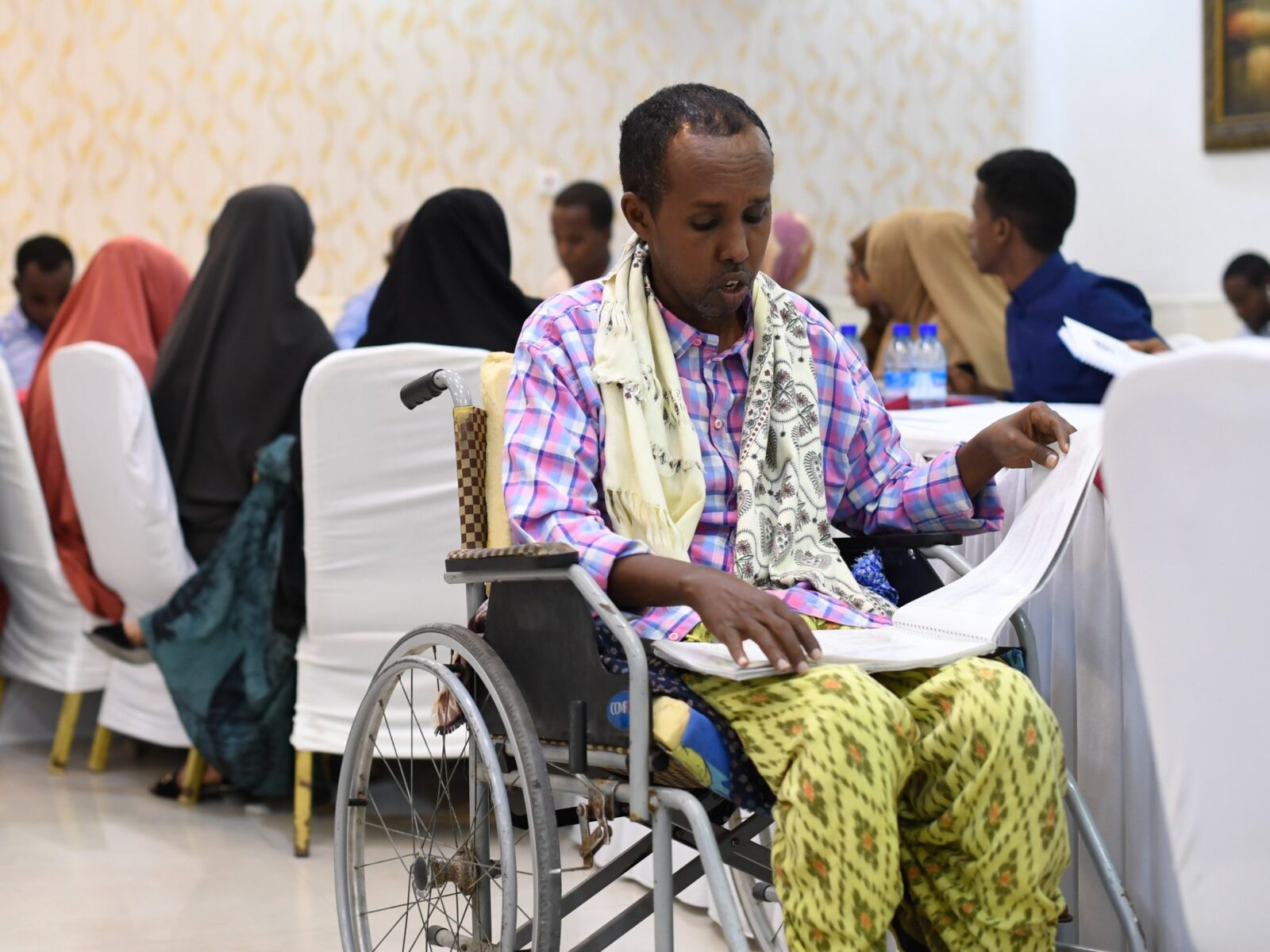Study Finds Mogadishu “Virtually Inaccessible” for Persons with Disabilities

GOOBJOOG NEWS|MOGADISHU: A new report by Independence House- has revealed that Mogadishu remains overwhelmingly inaccessible for Persons with Disabilities (PWD), despite the city’s rapid growth and reconstruction boom. The findings paint a stark picture of daily hardship, documenting widespread structural barriers, discriminatory attitudes and gaps in policy enforcement.
The study shows that 86 percent of PWD face systemic obstacles to moving around the city, with most public transport stops, sidewalks and major roads lacking the basic features needed to accommodate people with mobility, visual or hearing impairments. Only 4.7 percent of respondents said they had access to suitable pedestrian areas.
Researchers found that Mogadishu’s booming construction industry has prioritised commercial expansion over inclusive design. Many new buildings lack ramps or accessible entryways, while crowded streets and high curbs force wheelchair users into traffic. Ninety-seven percent of respondents reported that crossings had no tactile or audible signals, making movement dangerous for visually impaired residents.
Public transport emerged as one of the biggest barriers. With Somalia lacking a formal public transport system, PWD rely on private buses, tricycles and taxis—services that respondents said often deny them space or refuse to pick them up. One respondent described being ordered to disembark mid-journey during traffic congestion, while another noted that the entire city has only one wheelchair-accessible van, donated by an international agency.
The report also highlights exclusion in schools, workplaces and even religious spaces. Many mosques have no ramps, and visually impaired students are often forced to take oral exams due to lack of Braille materials. Employers seldom make accommodations for disabled staff, reinforcing a cycle of unemployment and dependency.
Independence House notes that Somalia has taken steps toward disability inclusion—such as establishing the National Disability Agency and adopting the National Disability Strategy—but limited resources and weak enforcement mean that policy gains have
The authors warn that without urgent investment in accessible infrastructure, inclusive policies and public awareness campaigns, Mogadishu risks entrenching a system that permanently sidelines more than 11 percent of its population.
“Urban growth without inclusion is exclusion,” the report states. “For Mogadishu to thrive, persons with disabilities must be able to move, work and participate fully in city life.”
Independence House is a think tank, not-for-profit organization based in Somalia.